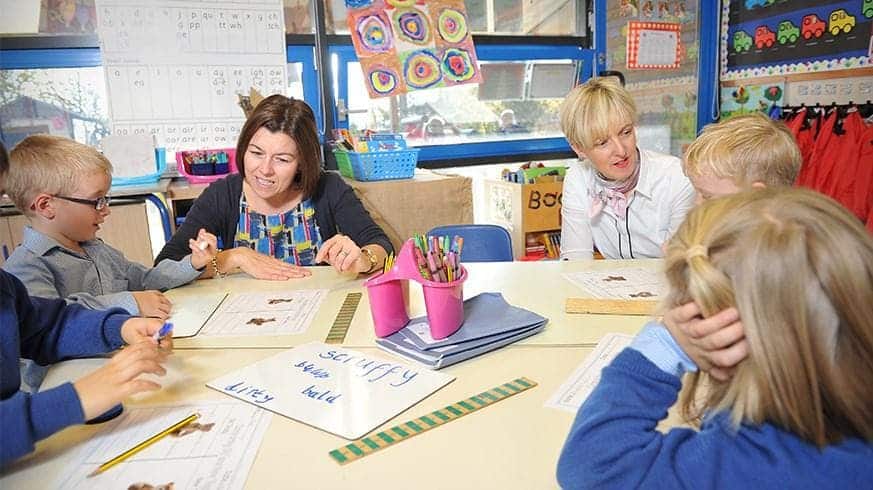Reading and Writing
Children follow a reading and writing programme called Read Write Inc (RWI). This is an inclusive literacy programme based on synthetic phonics. Synthetic phonics is the ability to convert a letter or group of letters (graphemes) into sounds (phonemes) that are then blended together into a word.
The children have 3 RWI sessions per week; each session will last between 40 minutes to an hour. They are grouped according to their needs and their reading and writing ability, across the Reception Classes – the greater the homogeneity of the group, the more focused the teaching and the faster the progress of the children.
Reading
Reading – the children will:
- Learn the 44 sounds and the corresponding letters using simple picture prompts.
- Learn to read words using sound blending.
- Read lively rhymes and stories featuring words they have learned to sound out.
- The children will bring home books or activities each week, pitched at an appropriate level.
We have a huge focus on story time, reading to the children several times every day and we have favourite books which we read time and time again. Other members of staff are invited in to read to pupils as well.
All of our displays are labelled and words can be found all around the school. We have a huge range of books available to the children, including fiction and nonfiction, topic based and traditional stories. The children have regular access to the library and are read to by our librarian. The children play word Bingo, sequence word tiles, match words to pictures, build word puzzles and read simple words to follow instructions.
Writing
Writing – the children will:
- Learn to write the letters which represent the 44 sounds (correct formation and orientation).
- Learn to write words by saying the sounds and using the correct graphemes.
- Write simple sentences.
- Compose stories based on simple picture strips.
- Learn simple editing skills.
- Be given opportunities to write for different purposes.
- Learn to spell frequently used words.
- Each week the children will have a further two Literacy sessions as a class. This provides opportunities to explore additional texts, stories and rhymes from a wide range of genre.
Some of the things we do include using chalks, sticks in the sand, finger paints, shaving foam, water and paintbrushes, doing large and small writing and air writing – trying to get the movements of the letters, not just pencil and paper work.
White boards are used to remove the pressure of making mistakes and it being permanent. We write lists, labels, invitations, cards, stories, speech bubbles. We write during our role play, for example appointments and prescriptions in the Drs and vets, get well soon cards and shopping lists. Rainforest explorers record what we’ve found and we also create zoo tickets, maps and labelled displays. Independence is encouraged and writing materials are available at all times. We make class books which we all illustrate, add ‘lift the flaps’, labels and so on, and store these in our book box. Teachers model writing for pupils and annotate their role play stories for them.

